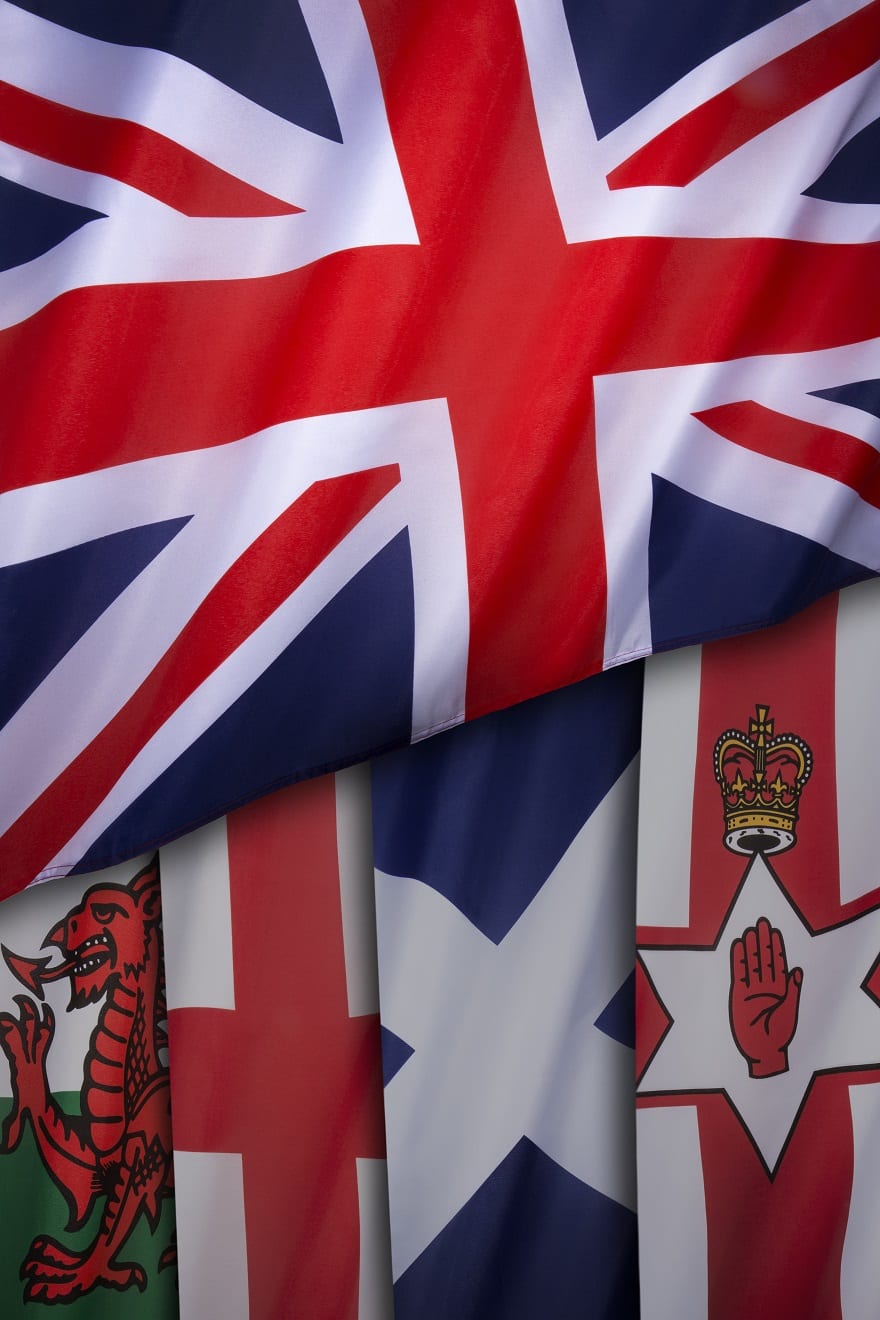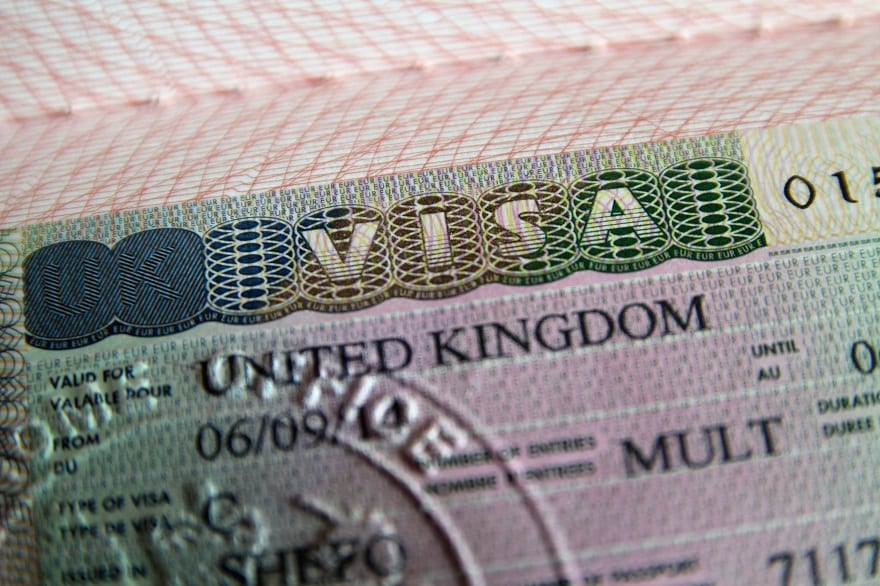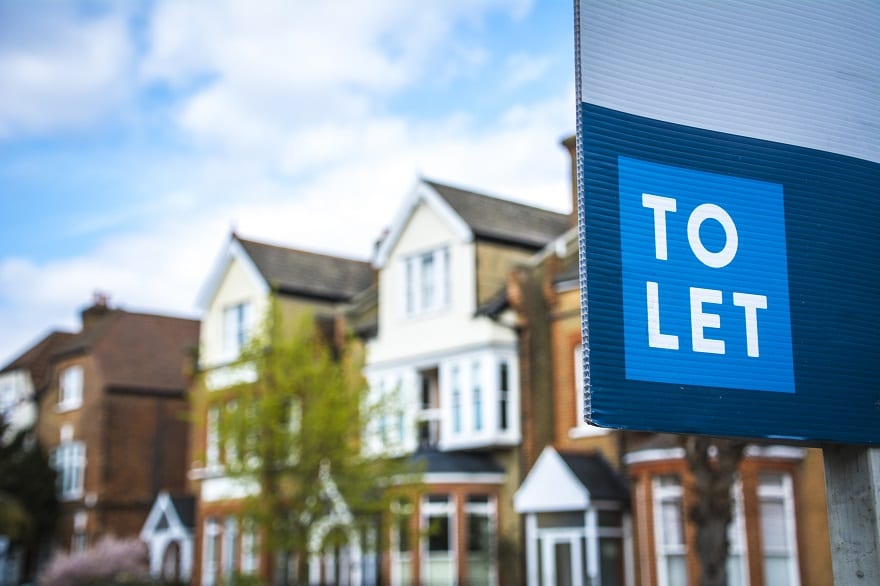Relocating and Moving from UAE to the UK
Moving to the UK: Ultimate Guide
Did you know that the United Kingdom is the second most popular destination for ex-pats? Following the United States, it is the most desirable place in the world to live. With a quality of living that is amongst the best in the world, it is easy to see why moving to the UK is such a popular option.
Currently, around 14% of the total population of the country was born abroad, with approximately 39% of migrants having been born in the EU. That means you will be in good company with around 642,000 other ex-pats and immigrants coming from every corner of the globe. The population is so diverse that there are 250 languages spoken in London alone.
Think that life in the United Kingdom might be for you? Keep reading to learn anything and everything that you need to know about moving to the UK.
Living / Lifestyle
What's It Like to Live in the UK?
One of the biggest questions everyone has about moving to the UK is one of the most challenging to answer. While we all have certain stereotypes and preconceived ideas about life in Britain, they are often far from the truth. Not everyone speaks the Queen’s English while sipping tea under grey skies. In fact, when it comes to communication, the country has ten native languages and a dizzying 37 dialects on top of the hundreds of foreign languages.
Culturally, lifestyles vary dramatically across the country. Life in London, for example, is radically different from life in rural Scotland. In fact, moving from Dubai or Berlin to London could be less of a culture shock than moving from a rustic British village to live in London.
To really get a clearer idea of what life will be like in the UK, it’s essential to get to understand the different areas. Before we dive into the logistics of moving to the UK, it’s essential to know the various countries that make up the kingdom. Understanding your options and choosing a country is going to make a significant impact on your life.

What’s the Difference Between England, Britain, GB, and the UK?
The geography of the UK is often confusing to newcomers. What we call the UK is officially the United Kingdom of Great Britain and Northern Ireland. The state is made up of four different countries: England, Wales, Scotland, and Northern Ireland.
Geographically, Great Britain is one of 6,000 islands that make up the British Isles. These islands include independent countries that are not part of the UK, like Ireland, along with small so-called Crown Dependencies like the Isle of Man.
When we talk about England, we are talking about just a single country. Meanwhile, what we call Britain is England and Wales; Great Britain is England, Wales, Scotland. Finally, to include Northern Ireland, the entire area is called the United Kingdom. It’s a bit confusing, but it is terminology to have on your radar for clarity. When you are searching for information, especially details provided by the local government, it is key to know the correct terms.
Rather than just researching what it’s like to live in the UK, do spend the time getting to know each area and its opportunities. England, Wales, Scotland, and Northern Ireland each have their own distinct strengths and weaknesses.
Cost of Living
How Much Does it Cost to Live in the UK?
Generally speaking, northern Europe is expensive across the board. From Iceland to the UK to Finland, it is a pricey region. At the same time, with the comparatively high wages, having a high cost of living is not necessarily a bad thing.
To get an idea of what to expect, you need to look region by region. Even within England, prices will be dramatically different. In London, for example, you will pay £1,686 for a one-bedroom place in the city centre. Meanwhile, the same place would only cost £709 in Manchester.
If you have a family of four living in London, you will need at least £32,604 outside of those housing costs. If you are in Manchester, you can maintain a family of four with £25,296 outside of those housing costs.
Public Transport Costs in the UK
Generally speaking, public transport is fairly expensive in the UK compared to most of western Europe, particularly buses and railways throughout the country. You will often be forced to take at least two buses to get to many destinations. Charges start from around £1.40 but increase with distance.
Individual train journeys can be very expensive, ranging from £15 – £75+, however, frequent travellers or commuters can take advantage of season passes to drastically reduce journey costs. Trainline is a great site to buy discounted tickets online.

How Much are Utilities in the UK?
The average price for gas and electricity per household in the UK runs at approximately £48 / £52 per month respectively so around £100 per month. In most parts of the country there are several service providers and it is normally fairly simple to identify the most competitive tariffs.
Broadband/phone and satellite TV can be purchased as a bundled package and again this can be procured directly from companies Like BT and Sky, but also through supermarkets such as Tesco or Asda. Depending on the package you select, costs should be around £30 – £60
Dining out in the UK?
There are a multitude of restaurants in every city and town in the UK. This can range from Chinese, and Indian cuisine to Thai, Italian, Vietnamese, etc, but also there has been a resurgence in modern British cuisine and also pub grub.
Many establishments only open in the evenings and prices at a nice restaurant can range from £20 – £35 per head, (expect to pay 50% more in London). Pub chains, such as Harvesters and Brewers Fayre have become increasingly popular and offer very good value meals ranging from £10 – £20 per head. A reasonable bottle of wine will cost anything for £20 – £30.
Coffees shops and cafes are ubiquitous in shopping malls, and the high street, and offer a wide range of sandwiches and snacks and you comfortably enjoy a snack and a drink between £ 3 – £5
How Much is Income Tax and Social Security in the UK?
Anyone who lives and works for more than 183 days in a calendar year is eligible to pay income tax and social security. Anyone who earns less than £ 12,000 per year does not pay tax. Roughly speaking you are taxed 20% on annual earnings between £12,000 – £46,000. Income tax rates double to 40% if you earn £46,000 – £150,000 and the top tax bracket is 45% reserved for people earning over £ 150,000 per year. Estimate your UK income tax.
In addition to income tax, working citizens in the UK pay Social Security. This is used to cover unemployment, healthcare, maternity and pensions. Most people pay around 12% of their salary each month
Moving to the UK
What Moving Documents are Needed For Moving to the UK?
Used Household Goods and Personal Effects
- Legible copy of passport
- Detailed inventory in English, dated, and signed by the owner of the goods
- Transfer of Residence (ToR)
- Copy of bill of lading (BL) / air waybill (AWB)
Motor Vehicle
- ToR1 Application
- Original bill of lading / air way bill
- Declaration form C384 (if less than 6 months old)
- Copy of registration documents proving ownership
- Insurance policy documentation (copies from country of origin proving use)
- Utility bills / bank statements that prove place of residence was outside the European Union and exceeded 12 months
Pets
- Vaccination record
- Veterinary health certificate
- Form C5
- Import license
For more information on restricted and prohibited items and a more in-depth look at documentation please check the International Association of Movers.
Legal / Visas
How to Get a Visa for the UK?
Of course, one of the first elements to be dealt with before moving to the UK is obtaining a visa. As with most countries, the United Kingdom has a wide range of visa options. Before you arrive in the country or invest any significant time into organising your move, start by familiarising yourself with the logistics of your residency visa.
Unless you have family in the country or existing ties in some form, your best starting point is with a work visa for the UK. If you have an established career, regardless of the field, there are options for migrating to the UK via a work visa.
Work Visas
The General Work Visa (Tier 2) is one of the most common visas for those moving to the UK. If you aren’t from the European Economic Area or Switzerland and have been offered a job, this is the visa that you will likely need to get.
Your employer will be your sponsor and it takes around three weeks for your visa to be processed. If you’re in a rush, there is also an express application option. You can apply for this visa from outside of the UK. Read more on the UK government website.

The Full Visa Options for the UK
Work visas aren’t the only option. If you are considering opening a business or are already an established entrepreneur, there are numerous option for those looking to invest in the country.
Investor and Business Development Visas
If you are thinking about starting a business in the country, or feel that you could bring a unique skill set to the country, read up on these topics:
A Complete List of Visa Options
Money & Taxes
How Do Taxes Work in the UK
When you are considering going moving to the UK to work, it’s essential to understand how the tax system works. One of the biggest surprises of moving abroad can be your net salary. When you receive an offer, it is crucial to fully understand the tax system and see what your correct takehome salary would be.
Like many European countries, all of the regions of the United Kingdom work on a graduated tax system, meaning that you pay progressively more as you earn more. Keep reading below to see the current rates.
Tax Rate for the UK
At the moment, for a salary of £12,500 or under, you pay zero per cent on your earnings. For an income between £12,501 and £50,000, you pay 20 per cent on earnings. It is important to note that if you earn £12,501 you won’t be taxed 20 per cent on your entire income. Instead, you will be taxed 20 per cent on the amount over £12,500. In other words, for a salary of £12,501, you would be taxed 20 per cent on that one pound over £12,500. The rest will be untaxed.
For a salary of £50,001 to £150,000, you will pay 40 per cent, and at income over £150,001, you will pay 45 per cent tax. As you move up each step in income, just keep in mind that only the amounts within the tax rate will be charged at that tax rate (as with the example of a salary of £12,501).
How to Open a Bank Account in the UK
While it is relatively easy to open a bank account, it is something that you will have to save for later. To open a bank account in the country, it is vital to have proof of address. The two necessary pieces are a passport or driving licence along with proof of address. The tricky part, of course, is getting a proof of address.
It can certainly be inconvenient to move to a country without a local bank account. Nonetheless, you will need to be settled into a long-term home before getting your account. You can use the following documents to show a proof of address:
- Rental lease or mortgage agreement
- Recent utility bill like a gas or electric bill
- Bank statement or credit card bill that has been mailed to your address
- Tax bill from the council

Climate & Weather
What’s the Weather like In the UK?
While the county is famous for its rainy days and overcast skies, there are a few pleasant surprises. Overall, the climate of the United Kingdom is temperate and relatively consistent. You will find that most of the year is overcast and relatively cold. Like many things in the United Kingdom, there are variables from place to place. While some areas may be overcast with a little rain, other areas experience rain 200+ days per year.
Generally speaking, you will find that the areas of England, Wales, Scotland, and the United Kingdom can be broken down into four different areas. Looking at the northwest, which includes Northern Ireland and the west coast of Britain, you experience mild winters and cool summers with heavy rain throughout the year.
In the southwest, the summers are a bit warmer and the year is slightly less rainy, but you will find it consistently wet. Looking to the east, you will find drier weather, particularly in the southeast. Meanwhile, in the northeast, you will find that the winters can become bitterly cold and the summers stay cool.

Buying & Renting a Home
How to Find a Place to Live in the UK
Once you have secured a job, the next step it to start looking for a place to live. The majority of people moving to the UK will start out in rental accommodation. Once ex-pats get settled in, most migrants do indeed end up buying a home. In the United Kingdom, the homeownership rate is around 62 per cent.
For more information read our article The best places to live in the UK.
What Are British Homes Like?
Whether you are renting or buying, you will find a range of options. The most popular option in the UK is a semi-detached home. This means that two houses are joined together into one. They tend to be bigger than flats, which are a common apartment-style option in more urban areas. Likewise, a terrace home is a smaller option in most cases, and consists of several houses joined together. For a larger home, a detached house is an option that will give you a standalone dwelling.
Whether you are renting or buying, it’s helpful to have an idea of the common home price within each area. To give you a more complete picture of how much a house costs in each country of the United Kingdom, here are the average house prices:
Northern Ireland- £135,060
Scotland- £178,991
Wales- £142,304
England- £231,855

How to Rent in the UK
Two common options for renting in the UK are to work directly with a landlord or hire a letting agent to work an intermediary. There are benefits and disadvantages of either option.
When you work directly with a landlord, you will have a lower move-in cost and fewer hoops to jump through. If you work with a letting agent, it is more common to have to do a credit check and provide references. While it is more hassle and cost upfront, working with a letting agent gives you someone who will coordinate repairs and manage any complaints that you may have.
If you are thinking about searching on your own or just want to get an idea of your options, start by looking online. Love Your Postcode, Zoopla Property, Rightmove UK, OnTheMarket, Mitula, and Nestoria are useful website.
Healthcare
How Does Healthcare Work in the UK?
The United Kingdom is well known for its free healthcare system, the NHS (National Health Service). The medical facilities are widely considered to be amongst the best in the world. At the same time, the options are restricted and you may have to wait for free care depending on when you live and when you visit.
As a resident of the UK, you will receive free care from the NHS as well as having the option to opt for private care. If you prefer, you can also combine free NHS public care with private health insurance.
When it comes to free healthcare, you can visit the doctor anytime at no cost. If you need to visit a dentist or optimist, however, you will often have to pay a fee.

Education
The Education System in the UK
If you are moving with kids, there are a few things that you will want to know about the education system in the United Kingdom.
Education at Different Ages
Kids from age five to 11 will attend what is called Primary Education, which is broken down into two levels. From age 11 to 16, students move into secondary education. After having completed level one and two, young kids will complete levels three and four.
Upon completing level four, students start to focus on GCSEs, which are a milestone in most areas. With the tests complete, after age 16 in the UK, school is optional. Anything beyond age 16 is considered to be further education. Qualifications options for moving onto further education include A-Levels, GNVQs, and BTECs.
If you or your kids are over age 18 and have already completed education outside of the UK, it is likely that moving to a university would be the first step.

What Are the Types of Schools in the UK?
Kids from ages of 5 to 16 are entitled to free education. There is a range of options that are funded by the local or central government. The options are community schools (sometimes called local authority maintained schools); foundation schools and voluntary schools; academies and free schools; and grammar schools.
Community schools follow a standard national curriculum and are independent of any company or religious group. Foundation schools and voluntary schools are sometimes religious or supported by other groups. Academies and free schools are not controlled by the government and sometimes follow a different curriculum. Meanwhile, grammar schools are run by the local authority and sometimes require testing for entire.
Note: There are variations in the school in different counties so your options may vary from the above. For location-specific info, check the details that are specific to England, Northern Ireland, Scotland and Wales.
Final Thoughts
Moving to a new country can be a little disconcerting, and left unchecked these feelings can develop into anxiety and stress. Moving to the United Kingdom, as we have seen, brings with it both exciting opportunities with some potential challenges. However, embracing the changes and adopting a proactive approach through the advice, tips and links we have provided sets you firmly on course to a successful relocation to the UK.
Why not get things moving by completing our simple form, enabling international movers to start work on your moving quotation, today!








